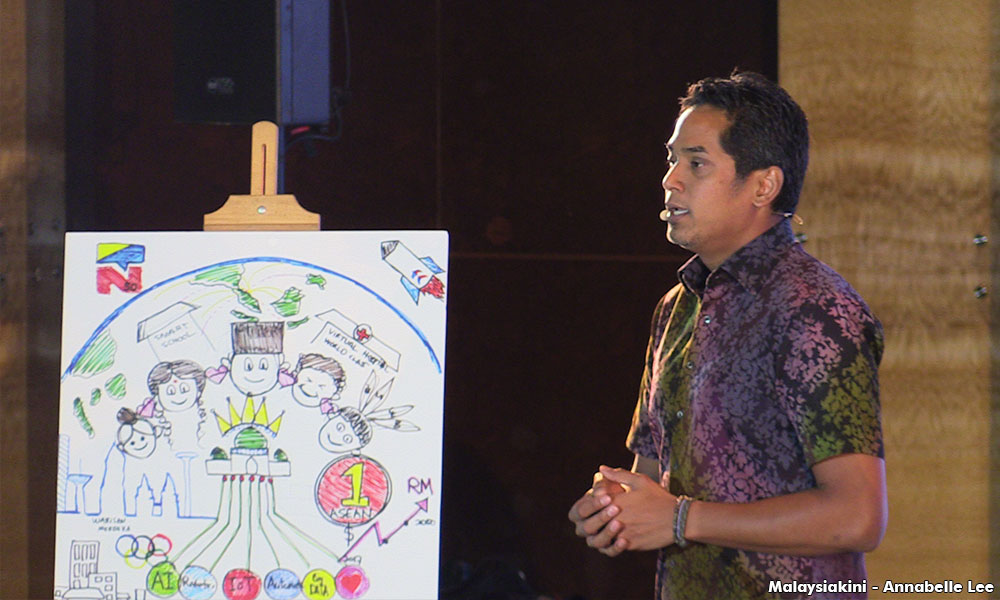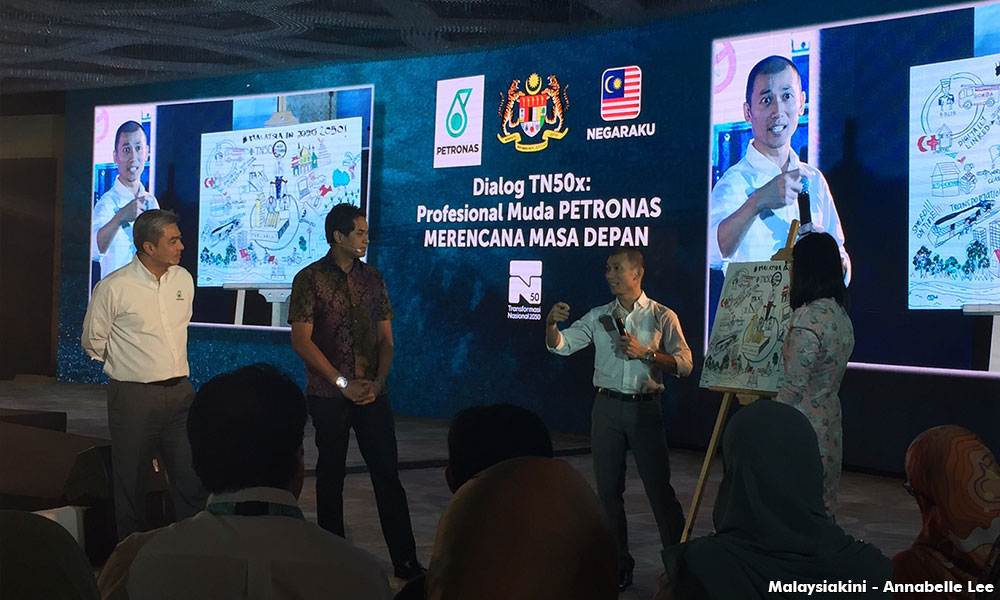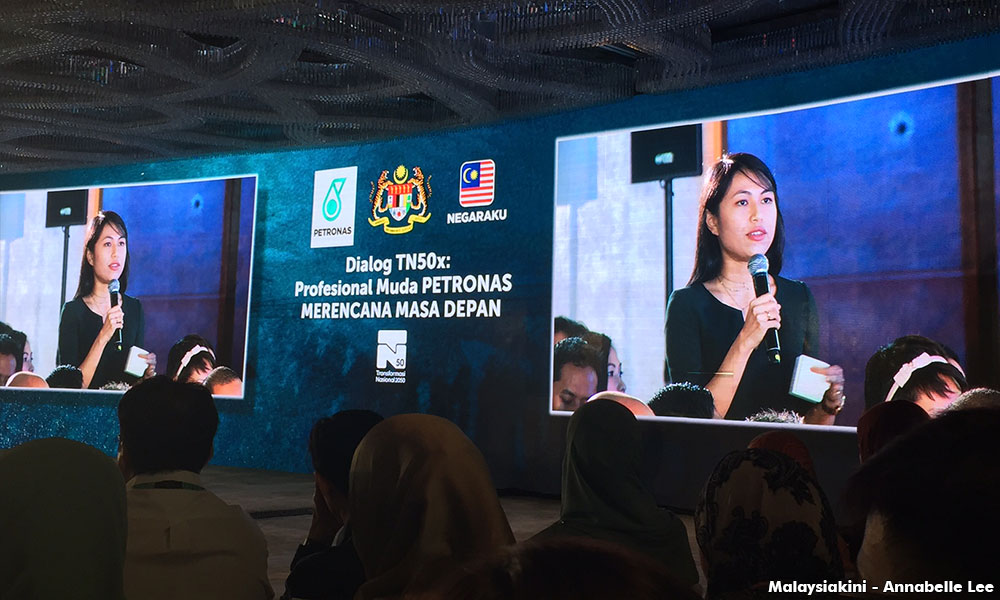
For many Malaysians, the country's electricity supply and Tenaga Nasional Bhd have become synonymous with each other.
This is in part due to the restrictive nature of the power industry, with the only alternative being the independent power producers, which have been accused of receiving preferential treatment that had even upset TNB executives.
But the vision of a liberalised energy market, which could even see Petronas supplying electricity, may possibly be a way forward.
The proposal was made during a Transformasi Nasional 2050 'X' (TN50x) dialogue with young professionals from the national oil company, hosted by Youth and Sports Minister Khairy Jamaluddin.
“Is it possible, by 2050, that we have a liberalisation of the energy market… so that it is accessible to every Malaysian and bring the cost (of electricity) down?
“Can we (Petronas) make our own power plants? And then supply it to the grid? I understand TNB must regulate it, but can we open the market for energy so that anybody can supply energy?
 “This way, we will see a more competitive environment that is economically and environmentally sustainable,” said Petronas executive Mohd Abshar Mohd Noor, who stood up to relay his aspirations for the country in 2050.
“This way, we will see a more competitive environment that is economically and environmentally sustainable,” said Petronas executive Mohd Abshar Mohd Noor, who stood up to relay his aspirations for the country in 2050.
Khairy was receptive towards the idea, even though he acknowledged that it was not be shared by the entire government.
“This may not be a government-wide view at the moment, but personally, I support Abshar’s point. I support grid decentralisation of transmission and generation (of energy).
“It’s a system that upends the current system of energy generation, but it’s something that we have to work towards,” said Khairy, who is also Umno Youth chief.
Meanwhile, Edurrah Jani of Petronas stood up to speak on the need for a clear energy security policy from the government.
Coal or no coal, that is the question
“Energy security is (dependent on) policy. If you don’t have a clear policy, you won’t know where your power is going to come from.
“Coming from the oil and gas (industry), we, of all people, are very aware of how many years of investment it takes to get hydrocarbon out of the ground.
“In a situation where we’re not sure what the long-term strategy is, it's not very conducive for business or for much to be done from our side,” Edurrah said.
Energy security, according to the International Energy Agency, is about the "uninterrupted availability of energy sources at an affordable price”.
The government also needs to be more consistent with its policies, added Edurrah.
“We went to Paris and pledged a 45 percent reduction in carbon by 2030, and yet 51 percent of our fuel in Peninsular Malaysia comes from coal. How do we align these two statements?
“We build more coal plants when we know that, in our backyard, we have a tremendous reserve of natural gas. Plus, we import almost all our coal.
“I want to see coherence and consistency - so one minister is not saying one thing and another minister is going to Paris pledging another thing. There must be clarity and something where we can stay the course for 30 years to come,” she said to supportive claps from the audience.
In 2015, National Resources and Environment Minister Wan Junaidi Jaafar represented Malaysia to sign the United Nations Framework Convention on Climate Change in Paris, France, announcing Malaysia planned to cut its carbon emissions by 45 percent by 2030.
 Responding to Edurrah (photo), Khairy noted that the country would need a clear understanding of where its future energy generation would come from and that meant considering nuclear energy in the mix.
Responding to Edurrah (photo), Khairy noted that the country would need a clear understanding of where its future energy generation would come from and that meant considering nuclear energy in the mix.
“We’ve been quite clear, going forward. Coal plants are not the preferred option. We need to go for gas power plants and develop cleaner energy,” he summarised.
The TN50x dialogue session, entitled “Profesional Muda Petronas Merencana Masa Depan” (Petronas young professionals shape the future), was jointly moderated by Khairy and Petronas upstream development and production senior vice-president Adif Zulkiflee.
More than 250 Petronas employees participated in the session, including Petronas board chairman Mohd Sidek Hassan and Petronas group president and chief executive officer Wan Zulkiflee Wan Ariffin.
TN50x sessions are similar to those organised under the TN50label, but are organised by corporations or NGOs, rather than by Putrajaya.
Launched in January by Prime Minister Najib Abdul Razak, TN50 pushes for a more “bottom-up” approach to nation-building by organising dialogue sessions with different sectors of society across the country.
Previous sessions were held with youth, women, the civil service, the entertainment industry, drug users and a selection of the Lesbian, Gay, Bisexual and Transgender (LGBT) community.- Mkini



No comments:
Post a Comment
Note: Only a member of this blog may post a comment.